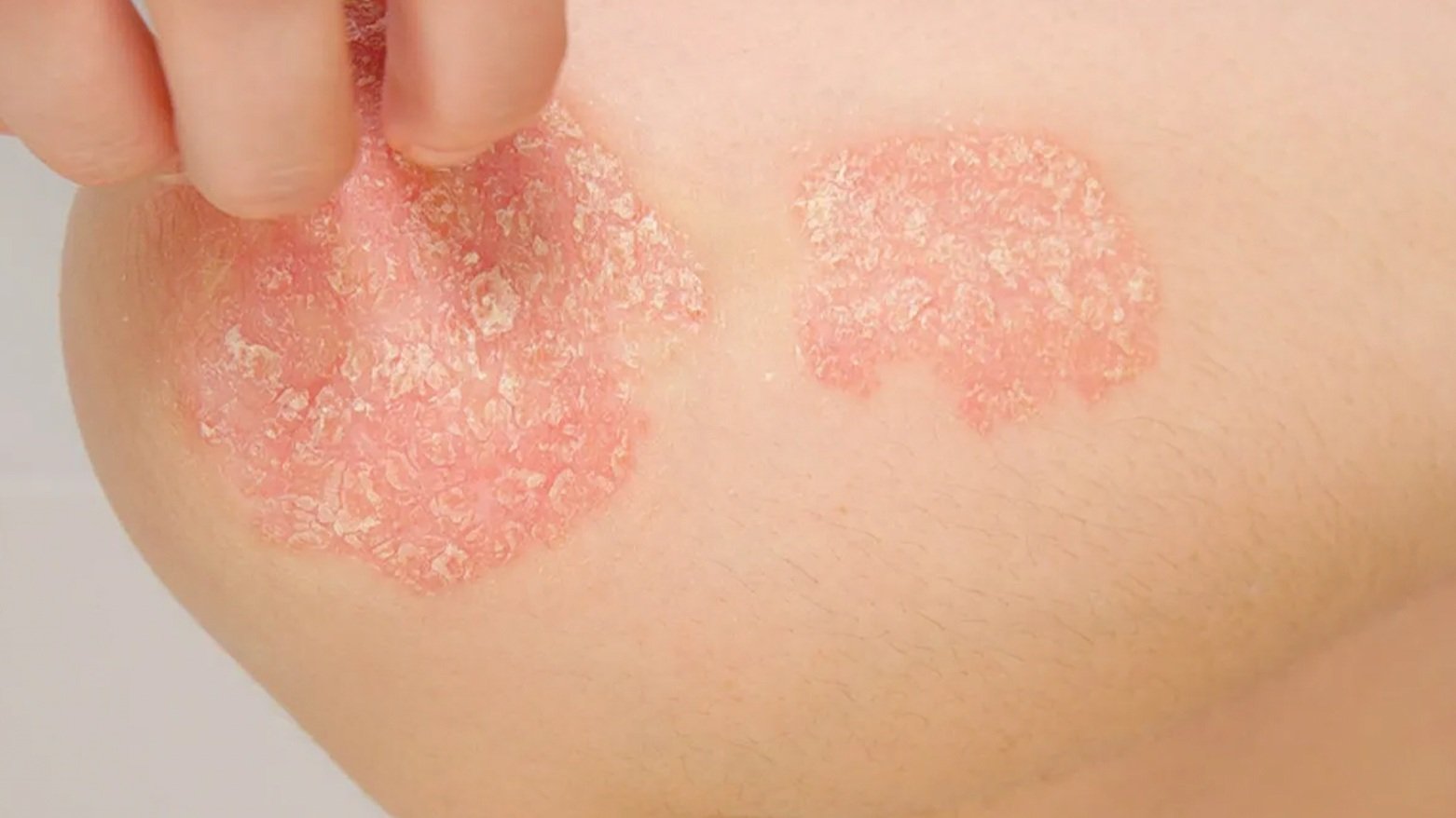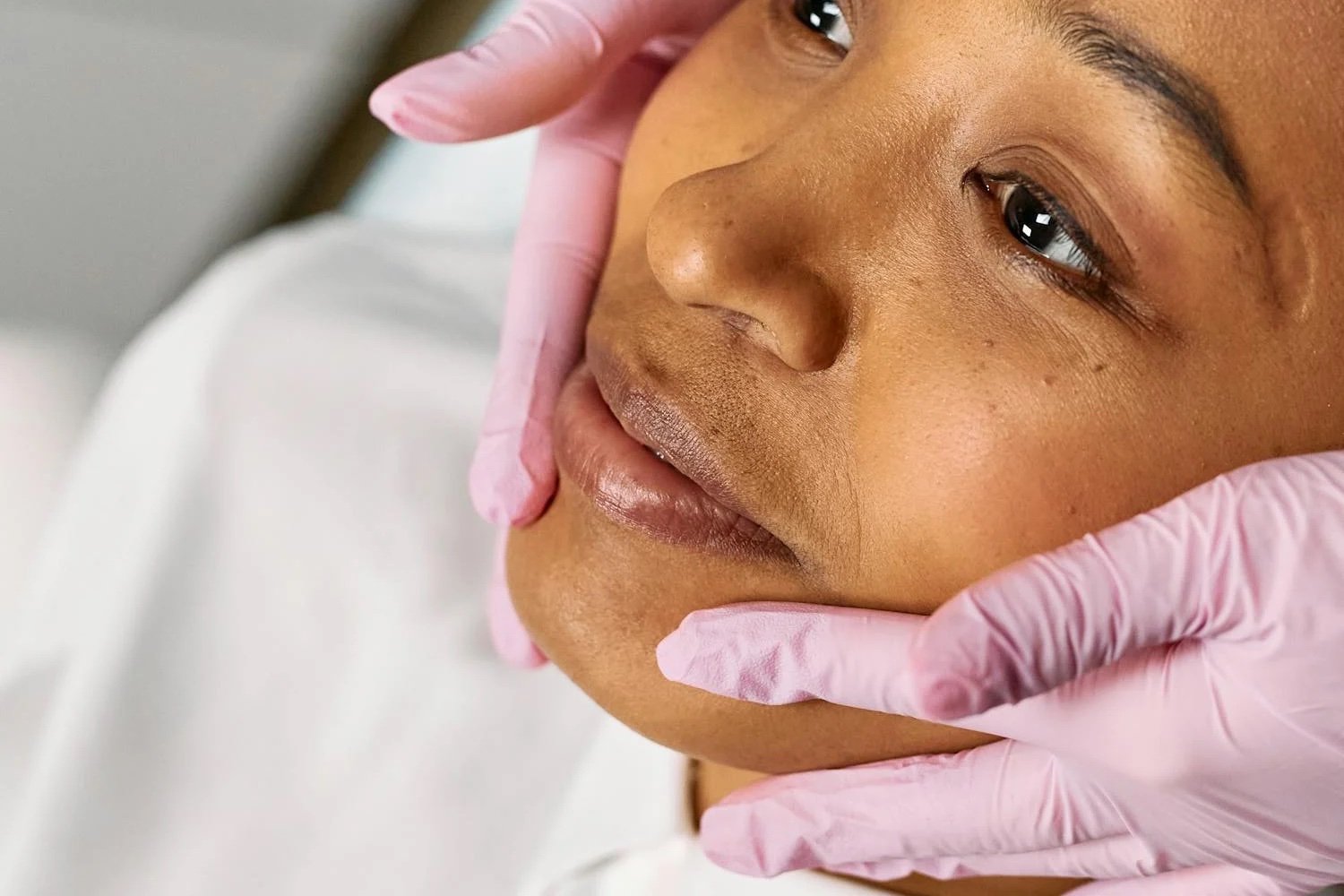
Psoriasis
What is Psoriasis?
Psoriasis is a chronic skin condition that speeds up the life cycle of skin cells, causing them to build up rapidly on the surface of the skin. This build-up of extra skin cells creates thick, silvery scales and itchy, dry, red patches that can be painful and sometimes unsightly. It’s an autoimmune disorder, meaning the body’s immune system mistakenly attacks healthy skin cells, leading to rapid cell growth. Psoriasis can affect different parts of the body, including the scalp, elbows, knees, and lower back. While it can appear at any age, it most commonly emerges in early adulthood. For many, psoriasis can have a significant impact on their quality of life, both physically and emotionally, but there are treatment options available to help manage the symptoms and improve the appearance of the skin.
What Commonly Causes or Triggers Psoriasis?
The exact cause of psoriasis isn’t fully understood, but it’s believed to be related to a combination of genetic and environmental factors. Genetics play a crucial role, as the condition tends to run in families. If you have a family member with psoriasis, your risk of developing it increases. Various triggers can cause flare-ups or worsen the symptoms, including stress, which can activate the immune system and exacerbate the condition. Infections, particularly strep throat, are known to trigger psoriasis in some people. Skin injuries such as cuts, scrapes, or sunburns can also lead to new psoriasis lesions in the affected area. Additionally, certain medications like lithium, beta-blockers, and antimalarials can worsen psoriasis. Weather changes, especially dry, cold weather, can also aggravate symptoms. Understanding these triggers and how they affect your skin can help in managing psoriasis effectively.
Treatment Options at Image
Red and Near-Infrared (NIR) Light Therapy
Red and near-infrared (NIR) light therapy is a cutting-edge, non-invasive treatment that harnesses the power of low-level light wavelengths to deeply penetrate the skin. This advanced therapy is particularly effective for managing psoriasis by calming inflammation and boosting cellular repair. It works by slowing the rapid overgrowth of skin cells, which helps reduce stubborn plaques and diminish the underlying inflammation. Beyond soothing the skin and alleviating itching, red and NIR light therapy enhances overall skin health without the harsh side effects commonly associated with topical treatments. It fortifies the skin barrier, providing a protective shield against potential atrophy from prolonged use of other therapies. With no downtime needed, this gentle yet powerful treatment offers a convenient and effective way to ease the symptoms of psoriasis, helping you enjoy smoother, healthier skin.
Jet Plasma
Jet Plasma is an innovative, non-invasive treatment that utilizes cold plasma technology to manage psoriasis. In the context of psoriasis, Jet Plasma helps reduce inflammation and promote the healing of psoriatic plaques by enhancing cellular turnover and soothing affected areas. It offers immediate skin-firming effects and long-term benefits, including improved skin texture and reduced redness. Additionally, Jet Plasma supports the effectiveness of other treatments by improving skin penetration of topical medications.
Exosomes and Purasomes
Exosomes and Purasomes offer a promising approach to managing psoriasis by targeting inflammation and immune system activity. Exosomes, which act as cellular messengers, help modulate immune responses and reduce inflammation, potentially easing psoriasis symptoms. Purasomes enhance this effect by delivering concentrated therapeutic agents directly to the skin, promoting healing and reducing irritation. Although not the primary treatments for psoriasis, these advanced options have shown potential in diminishing redness and discomfort, providing a valuable supplementary approach to managing the condition.

